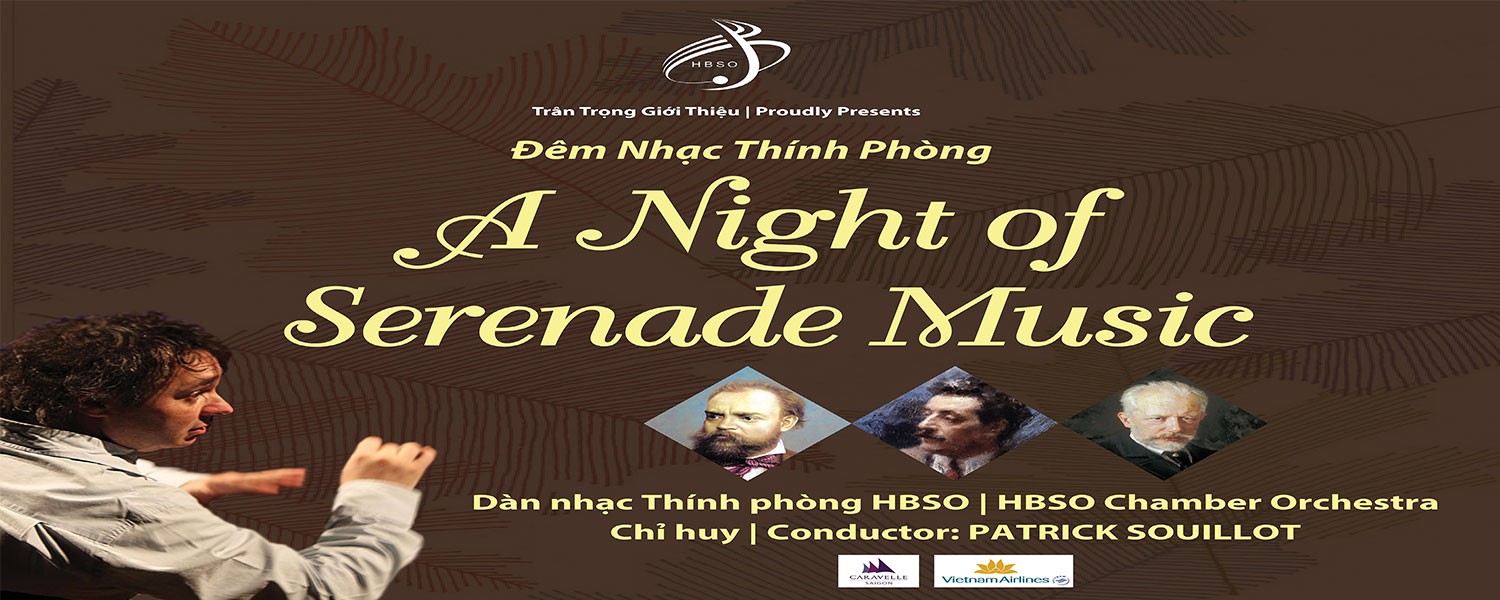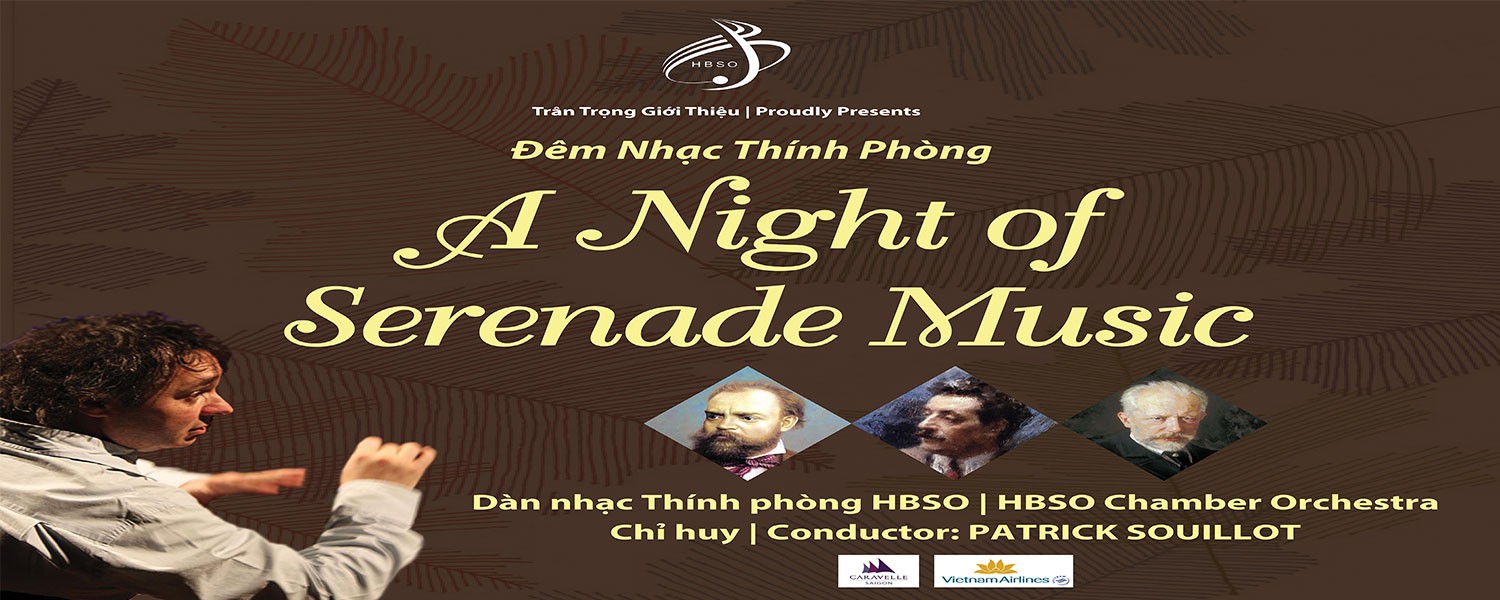GIỚI THIỆU VỀ SỰ KIỆN
Originated from brief musical pieces sung beneath the windowpanes, the sweet romantic tunes have grown into a musical genre itself, namely serenade (or music in the evening) bearing its own uniqueness in beauty, lightness and serenity. The genre aims to achieve life’s upliftedness and closeness. Words composed in serenade form induces sense of serenity, loving and open-ness, therefore wins unquestionably a growing audience.
Patrick Souillot, who arranges and batons the program, is one of the finest. He pursued his career through inspiration after the famed Leonard Bernstein and is currently guest conductor in many European and Asian orchestras such as Sofia, Montpellier, Krakow, Stuggart, Cannes, Avignon, Toulouse, Moscow, Hong Kong, Doha, Shanghai, London Symphony.
Suggested by Patrick Souillot himself, the night of serenade on October 8th will present the most definite in the genre’s history, by composers from Romantic period: Antonín Dvořák, Pyotr Ilyich Tchaikovsky and Giacomo Puccini.
Serenade Op.44 by Antonín Dvorák for woodwinds, cello and bass is one of its kind, described by Brhams as “difficult to discover a finer, more refreshing impression of really abundant and charming creative talent.”
Listen to a performance of Serenade Op. 44 by the symphony band of the University of Michigan:
Followed by the work of one of the best opera composers in music’s history, Giacomo Puccini’s Crisantemi (Chrysanthemums), Elegy for strings is a single, dark-hued, continuous movement where Puccini found his two liquid melodic ideas worthy enough to re-use in the last act of his opera, Manon Lescaut, of 1893. Puccini wrote in 1890—in a single night —as a response to the death of the Duke of Savoy.
The evening’s final work will be Pyotr Tchaikovsky’s Serenade for strings in C Major, op. 48, which was written with an ear towards one of his idols, a certain 18th century composer by the name of Mozart. This is one of the most famous in serenade repertoire, with 4 movements bearing individualistic beauty, wonderful melodies and danceability. In 1934, the work was used by George Balanchine, “forefather” of American ballet, to his ballet Serenade, which received critical acclaim and worldwide fame.
With these works, A night of Serenade invites us into a night of warm, serene and love-inducing atmosphere, and love itself.
THÔNG TIN ĐƠN VỊ TỔ CHỨC










